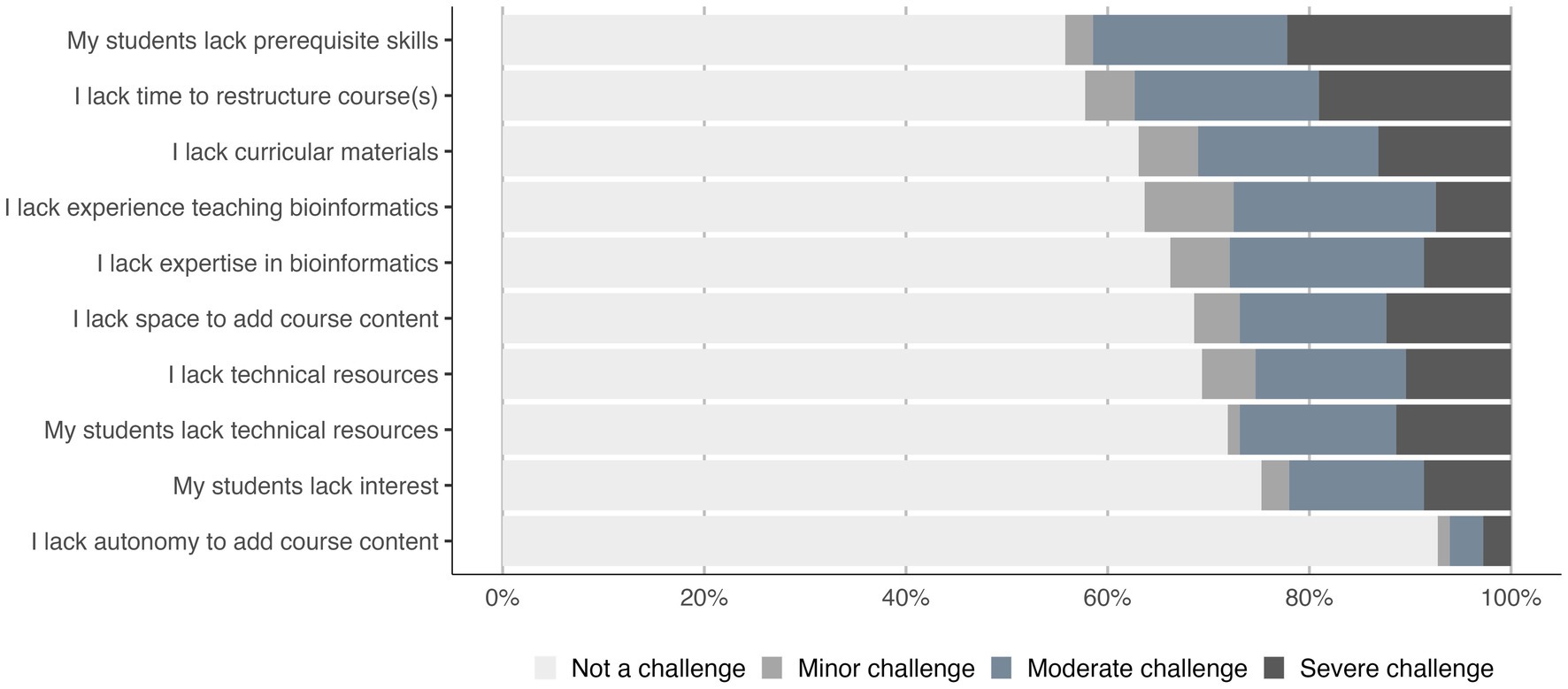Rumored Buzz on Bioinformatics Tutor
Rumored Buzz on Bioinformatics Tutor
Blog Article
The Bioinformatics Tutor Ideas
Table of ContentsThe 7-Minute Rule for Bioinformatics TutorSee This Report on Bioinformatics TutorEverything about Bioinformatics TutorNot known Details About Bioinformatics Tutor Get This Report about Bioinformatics Tutor
Of the total individuals entailed in the training, 80% were trainees from public college institutions, while the staying 20% came from exclusive establishments. To certify for a certification of involvement, students were required to go to at least 90% of the complete training hours. As an outcome of this demand, an outstanding 95% of the participants efficiently obtained their certifications, having not just fulfilled the minimum participation criteria yet likewise completed all appointed activities throughout the training.
Throughout the height of the COVID-19 pandemic, particularly between June and August 2020, the job group was charged with arranging specialized training in bioinformatics. This training was especially focused on students from the research study group Core for Research in Applied Computing at the Federal College of Pará (UFRA) The adaptation to remote learning systems as a result of the pandemic created a chance to explore brand-new training approaches and electronic devices that improved both reach and performance.
This course was made to supply an obtainable yet detailed summary of Artificial Knowledge techniques, specifically as applied in bioinformatics (Bioinformatics Tutor). This virtual layout allowed engagement from trainees throughout Brazil, several of whom may not have had the opportunity to go to in-person sessions.
Rumored Buzz on Bioinformatics Tutor
A significant feature of this program was its emphasis on hands-on learning. Around 50% of the total training hours were committed to sensible tasks where students developed intelligent models and applications in a series of clinical domain names, including genetics, molecular biology, and ecological data analysis. Extensively made use of tools and structures such as Spyder, Google Colab, Jupyter Notebooks, and Orange were incorporated into the coursework. These systems made it possible for pupils to take part in real-time information manipulation, design training, and algorithm testing.
Sixty of them were connected with different higher education and learning organizations in the state of Pará, while the remaining twenty came from organizations located in 5 other Brazilian states. By presenting Artificial Intelligence in a appropriate and practical context, the campaign offered to connect the space between concept and real-world application, offering trainees with a solid structure for future research study or work in the field.
The training initiative created component of a more comprehensive academic outreach effort called the Bioinformatics when traveling project. This task has, throughout the years, presented lots of pupils to the world of bioinformatics and computational biology. The events held under this umbrella campaign have actually taken area across several areas and years, as summarized in Table 1 (Listing of events, areas, years, and overall numbers of trainees and teachers)
One of the most amazing end results of the Bioinformatics when driving effort has actually been its contribution to the growth of decentralized research teams. Numerous of these teams, originally brought with each other by their participation in training events, have actually given that taken place to create independent clinical study in collaboration with regional scholastic establishments. The training not only fostered scientific thinking within the context of bioinformatics however additionally triggered collective partnerships that prolonged beyond the training environment. These cooperations have led to enhanced regional scientific performance and added meaningfully to the development of the broader bioinformatics neighborhood in Brazil.
Some Known Facts About Bioinformatics Tutor.
The very same team, omitting IH and RR, likewise acted as tutors for the sensible training components. Financing for the project was given through the give 88887.200562/ 2018-00 from CAPES.
The Federal College of Pará's Office of Research study (PROPESP/UFPA) also gave monetary support, especially for the manufacturing of the last manuscript. The writers proclaim no economic or commercial conflicts of rate of interest that can have affected the study. All interpretations and viewpoints shared in this write-up are entirely those of the writers and do not always show those of their respective institutions, the author, editors, or reviewers included in the publication procedure.

Rumored Buzz on Bioinformatics Tutor
From a pedagogical point of view, the teaching strategy made use of in the training was intentionally interactive. Classes were carried out in a way that urged trainee participation and discussion, going beyond memorizing memorization to explore just how ideas are created, applied in life, and evaluated in academic settings. The instructional viewpoint focused on supporting both solid and battling trainees, offering individualized assistance, and structure confidence with continual mentorship and patience.

Each group, containing approximately 36 participants, was sustained by three advisors-- a lot of whom were postdoctoral researchers with customized expertise. These mentors not only helped make the team tasks however additionally facilitated their execution, ensuring that each research study inquiry was both appropriately difficult and relevant. The objective was to offer a naturally reasonable context that participants could check out through flexible purposes and accessibility to curated datasets.
For additional insights into the methodology and outcomes of this project-based understanding approach, viewers are routed to S1 Text, which includes in-depth summaries of the pedagogical framework, analysis look these up strategies, and task themes utilized in the training sessions.
A Biased View of Bioinformatics Tutor
Of the overall individuals involved in the training, 80% were students from public higher education establishments, while the continuing to be 20% came from personal institutions. To qualify for a certificate of participation, students were required to participate in at the very least 90% of the complete training hours. Significantly, beyond the trainees that registered in the training sessions, 7 knowledgeable teachers participated in supplying the programs, while three specialized research teachers worked with the overall training process. Around 50% of the complete training hours were dedicated to functional tasks where students built intelligent models and applications in a variety of scientific domain names, including genes, molecular biology, and ecological information analysis. The training not just promoted scientific reasoning within the context of bioinformatics yet likewise triggered joint partnerships that expanded beyond the training environment.
Report this page